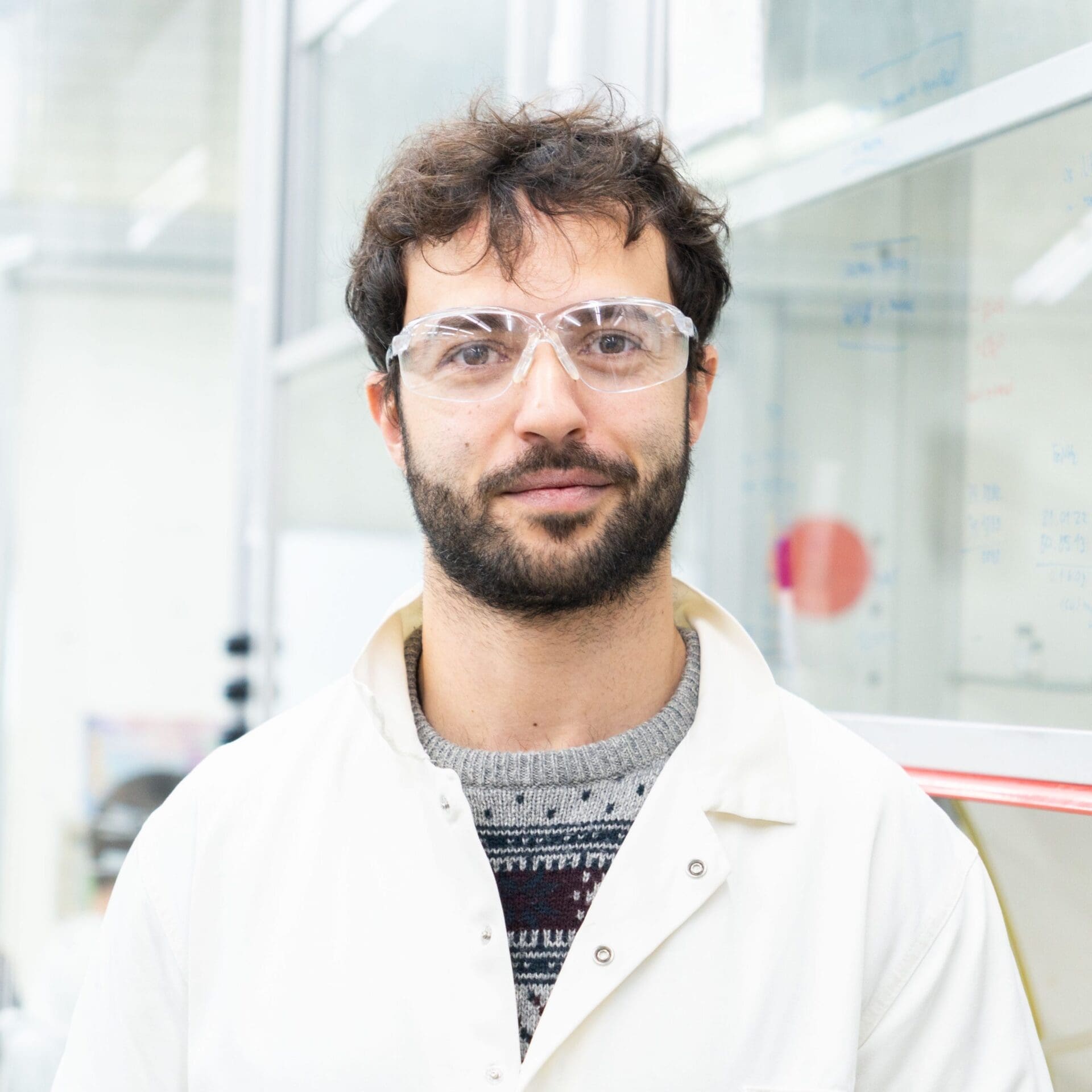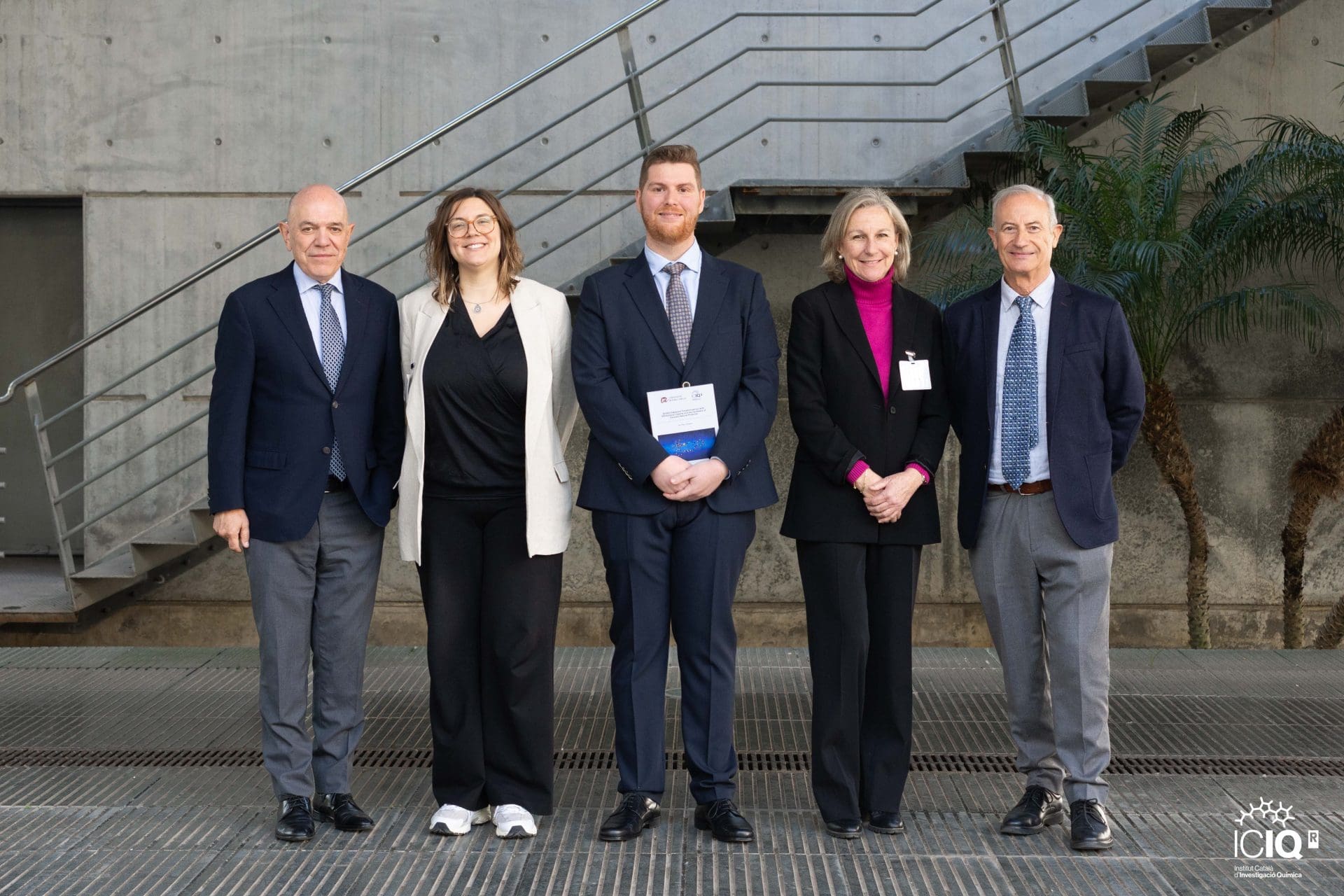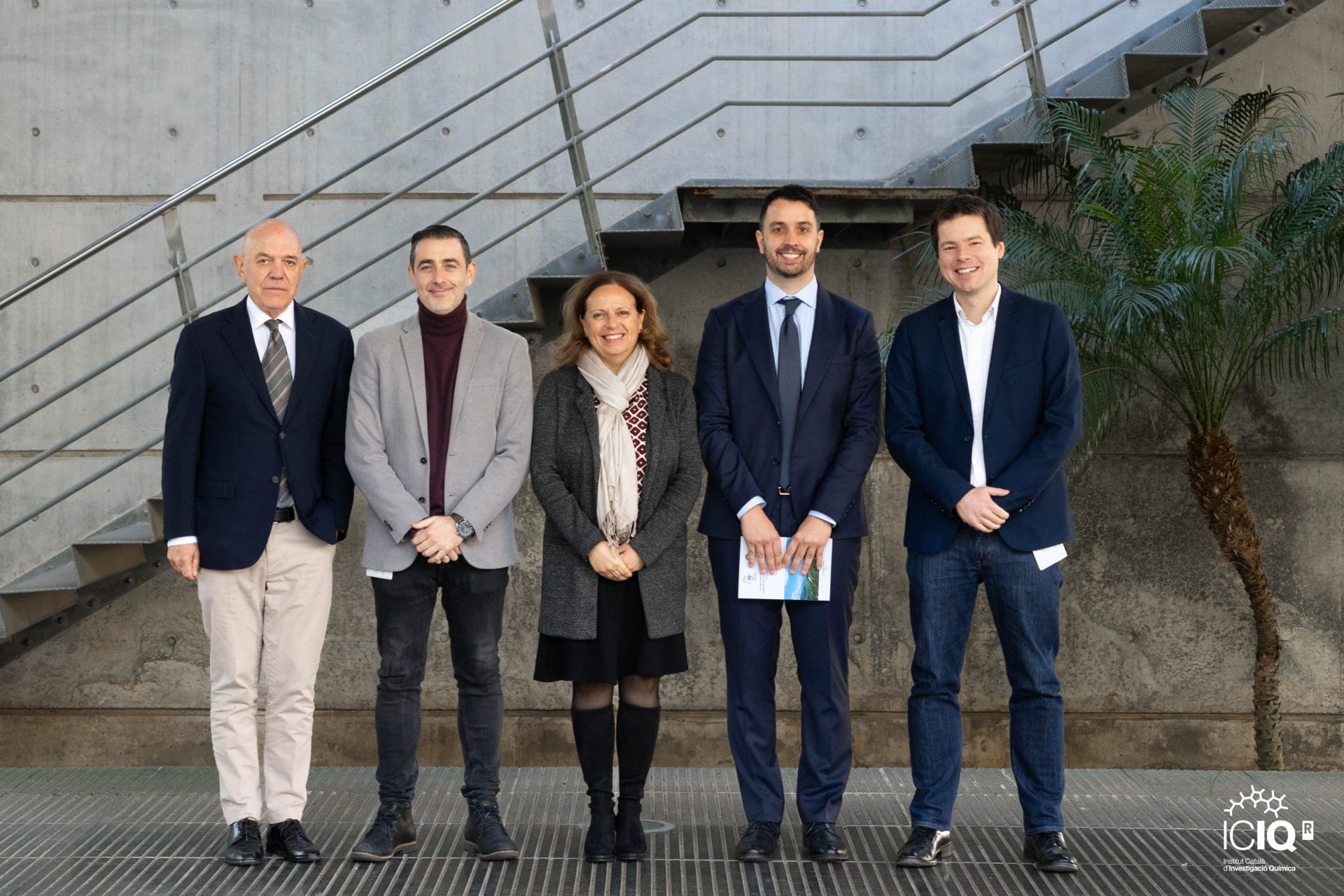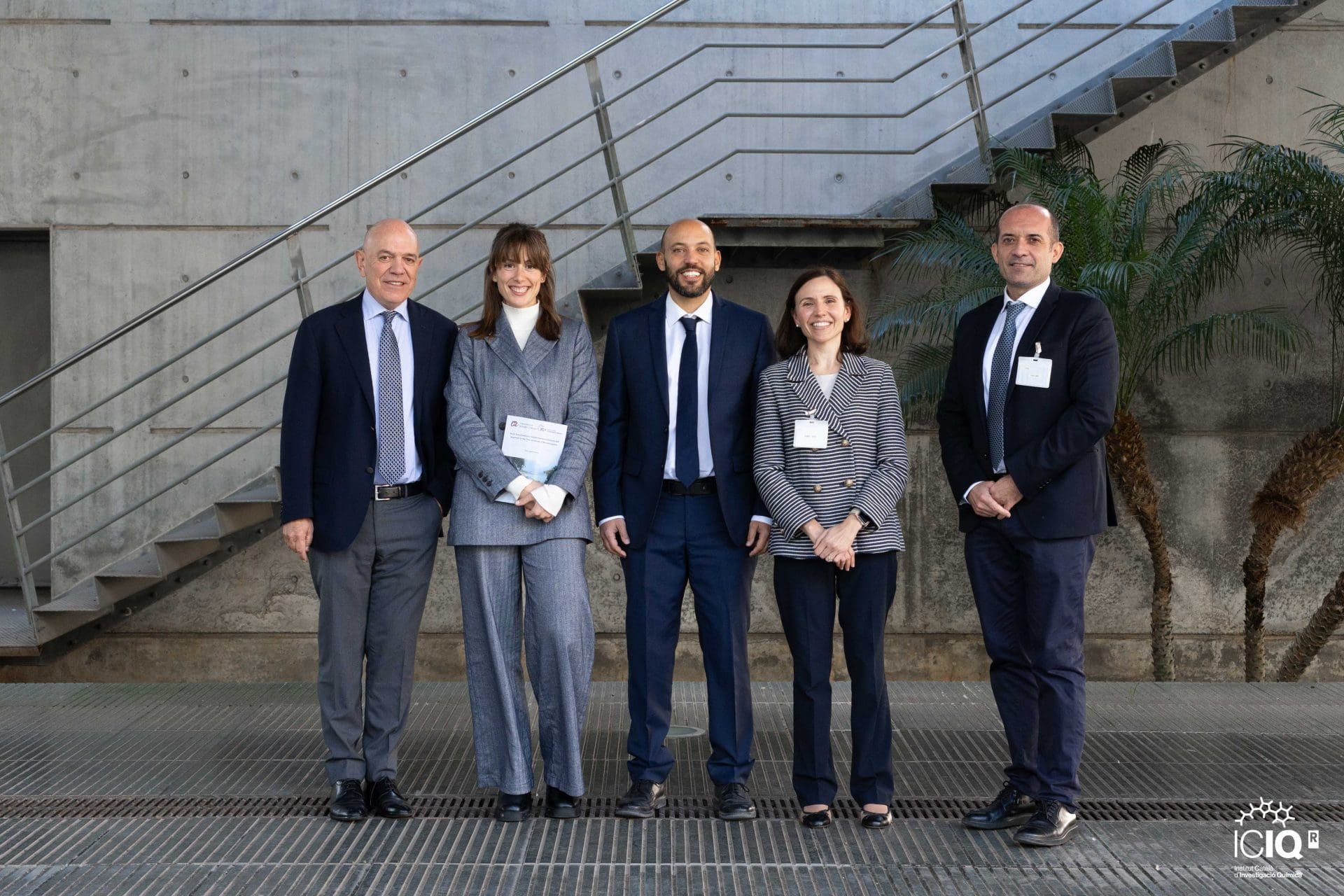Félicitations Dr. Le Saux!
Emilien Le Saux, PhD student under the supervision of Prof. Paolo Melchiorre, has defended his thesis entitled “Photochemistry and Organocatalysis for Radical-Based Carbon-Carbon Bond-Forming Processes” publicly on June 26th.
The members of the evaluation committee were Dr. Karl Anker Jørgensen (Aarhus University), Prof. Dr. Rubén Martín Romo (ICIQ-URV) and Prof. Dr. Mariola Tortosa (Universidad Autónoma de Madrid).

Dr. Le Saux was born in Fontenay-sous-bois, in the eastern suburb of Paris, where he lived until he was 19. He studied Organic Chemistry at Ecole Nationale Supérieure de Chimie (2015-2019) in Montpellier. As part of his degree he did several placements abroad. After completed his studies of Master he moved to Tarragona to starty a PhD within the Melchiorre Group. He used to be the drummer in the university band, so in his free time, he loves playing, listerning and discovering new music.
Why did you become a scientist?
I have always been better at hard sciences than humanities, so I naturally ended up working on these topics. I like to have clear answers to my questions, and science is either right or wrong.
What do you want to achieve as a scientist?
For the moment, I am trying to have fun thinking of new reactions to develop. Later, I would like to work in industry whether for new ingredients for fragrances, pharmaceuticals, or agrochemicals. Eventually, I hope my research can have even a tiny positive impact on society!
What is your thesis about?
The main objective of my thesis is to use readily available molecules as building blocks to make new ones that are usually rather difficult to access. The challenge comes from how simple our initial building blocks are and the way we attach them together to make the desired molecules. To make such reactions possible, we use light a source of energy together with small molecules called organocatalysts which drive these processes.
The thing that I like most about my thesis is….
Its diversity! I worked on three projects which are (at least to me) really different from one another. I gained distinct knowledge and skills from each project, which is really valuable, I think.
From the lessons learnt (or skills developed) at ICIQ, which one do you value the most?
Probably how to start and work on a project independently until it’s completed. It involves scientific work of course, but also a lot of other different aspects to make sure the project is going forward.
What ICIQ moment you´ll never forget?
The times when we stopped doing shifts in the lab after covid. We would listen to the album Inside by Bo Burnham (I highly recommend it) over and over again, singing along with my labmates.
What will you miss the most from ICIQ?
The support provided by the different units. It was extremely useful for some specific experiments, especially when it deals with something we don’t have any experience in.


Related news

Let's create a brighter future
Join our team to work with renowned researchers, tackle groundbreaking
projects and contribute to meaningful scientific advancements





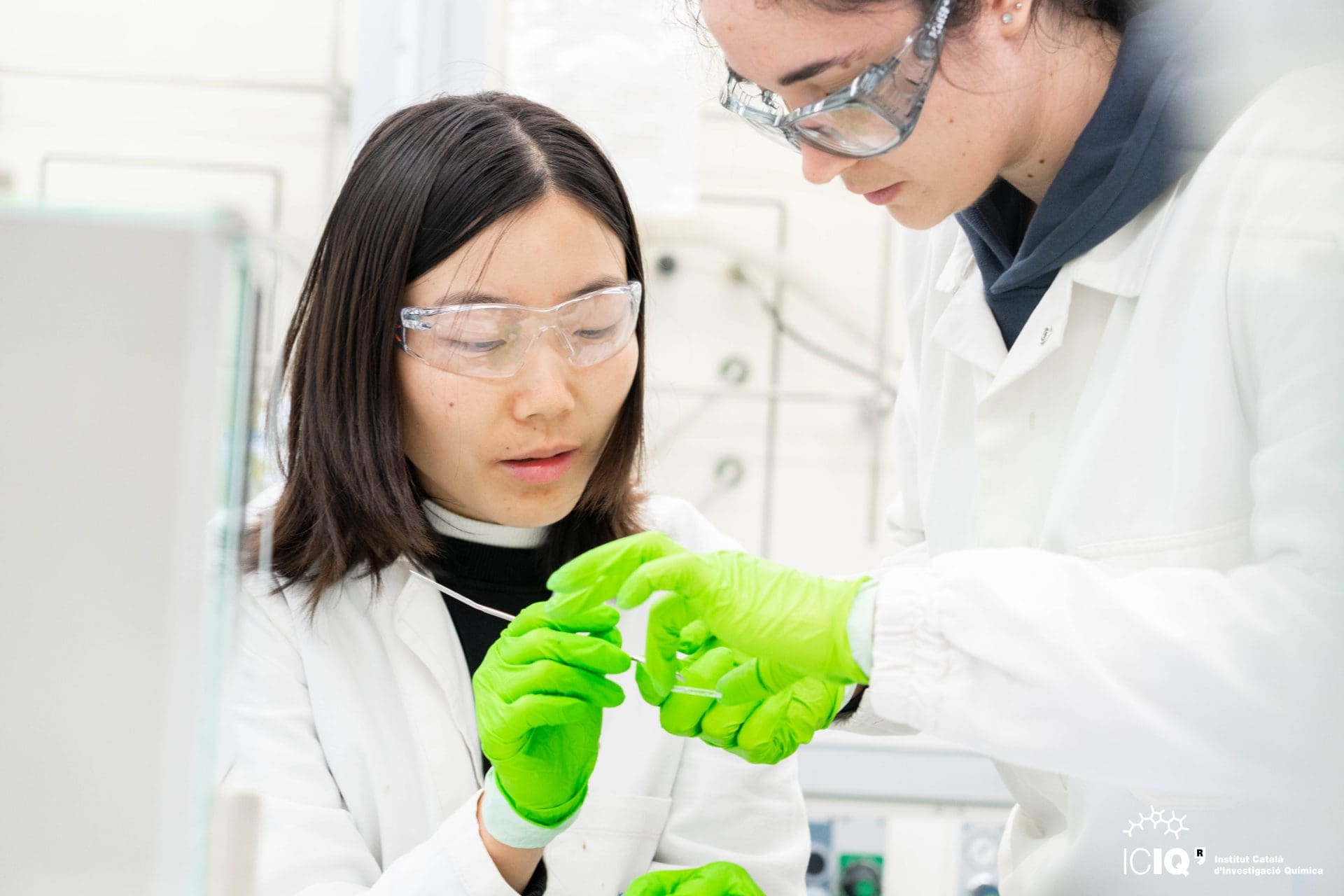
 21-01-2025
21-01-2025 